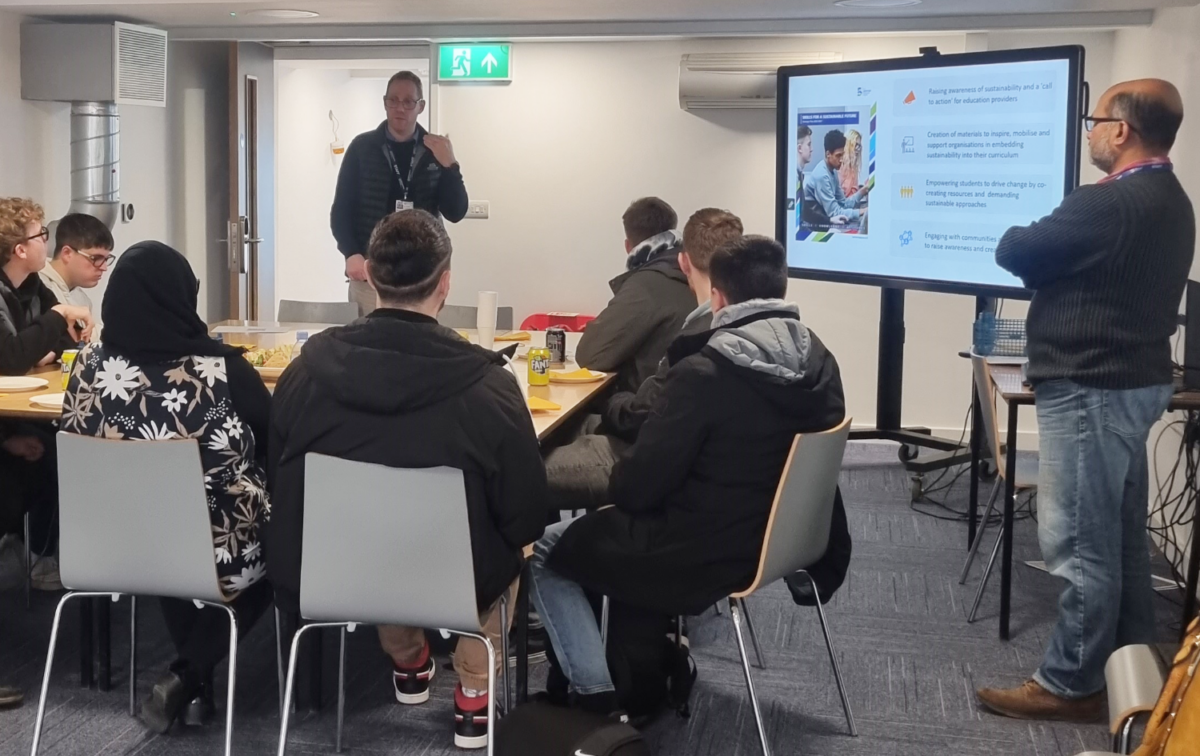Neurodiversity Leadership: Shaping UK Education Sector

In the rapidly changing landscape of the UK’s education sector, leaders are at the forefront of innovation, facing an array of challenges that are magnified for those who are neurodivergent. Neurodiversity encompasses a range of conditions, including autism, ADHD, dyslexia, and other traits. An estimated 20% of the working population identifies as neurodivergent. This percentage is thought to be even higher in fields that demand creativity, innovation, and hands-on skills, such as information technology, engineering and the arts.
The journey to leadership for a neurodivergent individual is often paved with significant obstacles, yet their unique perspectives are invaluable in driving innovation and fostering inclusive environments. However, as organisations evolve, the strategies that previously facilitated their success may require adjustments. It becomes crucial for these leaders to reassess and adapt their approaches to maintain effectiveness and navigate the complexities of organisational change.
For neurodiversity leadership, awareness is key
One of the primary challenges neurodivergent leaders face is the pervasive lack of understanding and awareness about neurodiversity in the workplace. Many have surmounted considerable barriers to attain their current positions, only to find that the very strategies that propelled them into leadership roles now need revision. Without widespread recognition of the strengths and challenges associated with neurodiversity, these leaders may struggle to adapt and thrive.
Consider the example of a leader within a large organisation who, despite excelling in financial performance, found his ADHD traits hindering his ability to navigate the internal politics of his organisation. His innovative efforts led to substantial success from a profit and loss perspective, yet behavioural misunderstandings placed him on a final written warning. Only through targeted support aimed at helping the organisation understand the root of these behaviours and assisting the leader in developing more effective strategies was he able to turn the situation around.
Neurodiversity leadership support systems matter
Another prevalent issue is the inadequacy of support systems. Often, when leaders perform well, their needs are overlooked. However, when challenges arise, questions about the individual’s competency are posed instead of inquiries into the underlying causes of their struggles. For instance, another individual I worked with was grappling with the impacts of a family bereavement and the breakdown of a personal relationship. These challenges overwhelmed them, affecting their ability to lead their team effectively. Combined with years of masking their difficulties, they were on the verge of burnout. Through careful analysis and engagement, a plan was developed that allowed them to take the necessary time to recuperate, reengage with their team, and ultimately return to their leadership role with renewed strength.
Workplace adjustments need to be normalised for neurodiversity leadership to thrive.
Workplace adjustments are often pivotal for neurodivergent individuals but can be perceived as a sign of weakness for leaders. Accessing these adjustments can be daunting and may not adequately consider the individual’s needs, including how they interact with their team, manage their time, and cope with various pressures. By reassessing these processes to be more inclusive and tailored to the leader’s needs, organisations can significantly enhance the effectiveness of neurodivergent leaders.
Making social work
Social interaction can pose challenges, particularly in senior roles where networking and forming connections with other organisations are crucial. Navigating social situations can be daunting for individuals with neurodivergent traits, such as those on the autism spectrum. I recently supported a senior leader who struggled with the concept of small talk, finding it irrelevant to his passion for mathematics and coding. By recontextualising small talk as a mathematical exercise, we developed strategies that allowed him to view social interactions through a different lens, facilitating improved communication and networking opportunities.
Stigma is challenging
The stigma and stereotypes surrounding neurodiversity in the workplace can be pervasive and damaging. Neurodivergent individuals are often perceived as awkward, complex, or “special,” obscuring the unique perspectives and skills they bring to their roles. It is imperative to challenge these stereotypes and recognise the diverse contributions of neurodivergent leaders beyond conventional expectations.
Mental health matters
Lastly, mental health and well-being are paramount. Creating an environment where it’s acceptable not to be okay and promoting open, meaningful conversations allows individuals to embrace their identities fully, amplifying their strengths and effectively managing challenges. I believe it’s pivotal that neurodivergent leaders are supported in maintaining their capacity to operate well. This often hinges on them having safe spaces to download and process what they’re doing so they can be the most effective for their organisations and teams.
Conclusion
Supporting neurodivergent leaders within the UK’s education sector is not merely a matter of accessibility but is essential for fostering a culture of innovation and inclusivity. By addressing the challenges they face, from the lack of understanding and inadequate support systems to the need for tailored workplace adjustments and breaking down stigma and stereotypes, we can unlock the full potential of neurodivergent leadership. This benefits the individuals and enhances organisational performance, creativity, and resilience.
As we move forward, let us commit to creating environments that recognise and celebrate the unique contributions of all leaders, paving the way for a more inclusive and dynamic future.
Nathan is an accredited coach and neurodiversity advocate who is passionate about supporting individuals, teams and organisations to empower neurodiversity in the workplace. Nathan has been leading the Neurodivergent Coach for over seven years on a mission to amplify strengths and manage the difficulties associated with neurodiversity.
FE News on the go
Welcome to FE News on the Go, the podcast that delivers exclusive articles from the world of further education straight to your ears.
We are experimenting with Artificial Intelligence to make our exclusive articles even more accessible while also automating the process for our team of project managers.
In each episode, our thought leaders and sector influencers will delve into the most pressing issues facing the FE.












Responses